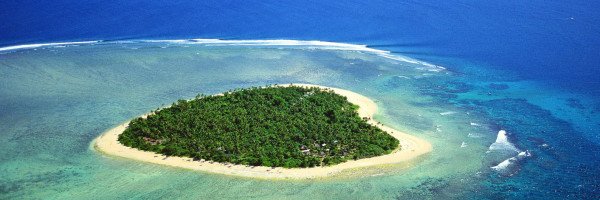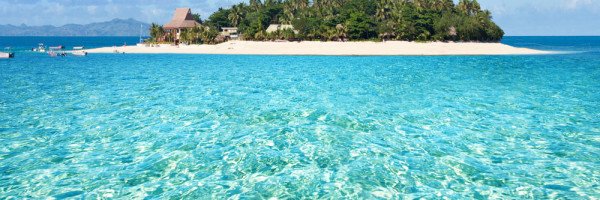The Economic Benefits of Tourism in Fiji
Tourism plays a pivotal role in Fiji’s economy, contributing significantly to its GDP and providing employment opportunities for thousands of locals. As the industry continues to grow, it has created a substantial influx of foreign currency, which is crucial for the development of infrastructure and public services. Hotels, resorts, and travel agencies thrive on the influx of tourists, leading to increased investments in various sectors. However, while tourism can be a boon for economic growth, it also raises concerns regarding the preservation of Fijian cultural heritage. Many local traditions, crafts, and practices have been commercialized to attract tourists, sometimes at the expense of authenticity. To ensure that economic benefits do not overshadow cultural integrity, Fiji must strike a balance between promoting tourism and maintaining its unique cultural identity. New Zealand offers a relevant example in its approach to tourism and cultural preservation. The Tourism Industry Aotearoa (TIA) emphasizes the importance of integrating Māori culture within tourism experiences. This model showcases how cultural heritage can enhance tourism while preserving authenticity. Fiji could adopt similar strategies, ensuring that tourism initiatives include genuine cultural experiences that respect and celebrate Fijian heritage. For more insights on tourism in Fiji, visit Fiji Islands.The Role of Community in Cultural Preservation
The involvement of local communities is crucial in preserving Fijian cultural practices amidst the growing tourism industry. Community-based tourism initiatives allow locals to share their traditions, crafts, and stories, providing tourists with authentic experiences. By engaging communities in tourism development, Fijians can ensure that their cultural heritage is respected and maintained. Furthermore, community-led initiatives can empower local populations, providing them with a sense of ownership over their cultural practices. This empowerment can lead to a more sustainable tourism model, where the economic benefits are shared among the community rather than concentrated in the hands of a few stakeholders. New Zealand’s approach to community engagement in tourism serves as a valuable model for Fiji. Many regions in New Zealand have successfully integrated Māori cultural practices into tourism, allowing local communities to guide how their heritage is presented. This not only preserves the culture but also enriches the tourist experience. Fiji can learn from these examples, promoting community-driven tourism that honors and preserves its rich cultural heritage. For more information, explore Fiji Islands.Challenges of Cultural Commercialization
As tourism flourishes in Fiji, the commercialization of cultural practices poses significant challenges. Traditional ceremonies, dances, and crafts may be altered or simplified to cater to tourist expectations, risking the authenticity of these cultural expressions. This commercialization can lead to a dilution of cultural significance, where practices become mere performances rather than genuine expressions of heritage. The challenge lies in finding a way to share Fijian culture with tourists while preserving its integrity. Educating tourists about the importance of cultural practices and the stories behind them can foster deeper appreciation and respect. Additionally, establishing guidelines for cultural presentations can help protect Fijian heritage from exploitation. In New Zealand, the concept of “cultural authenticity” is increasingly emphasized within the tourism sector. By promoting experiences that genuinely reflect Māori culture, tourism operators contribute to the preservation of cultural practices while providing enriching experiences for visitors. Fiji can adopt similar principles, ensuring that cultural commercialization serves to enhance rather than dilute its unique heritage. For further insights, check out Fiji Islands.Impact of Environmental Changes on Cultural Practices
The effects of climate change pose significant threats to both the environment and cultural practices in Fiji. Rising sea levels, changing weather patterns, and increased frequency of natural disasters can disrupt traditional lifestyles and the natural resources that many cultural practices rely on. For instance, fishing, which is integral to Fijian culture, is being impacted by overfishing and changing marine ecosystems. Preserving cultural heritage in the face of environmental changes requires innovative solutions and adaptability. Communities can develop sustainable practices that honor their traditions while also responding to environmental challenges. This approach not only preserves cultural heritage but also contributes to the resilience of local communities. New Zealand has made strides in integrating environmental sustainability with cultural preservation, particularly in Māori communities. Initiatives focused on protecting natural resources align with cultural values, promoting stewardship of the land. Fiji can learn from these examples, fostering a holistic approach that links environmental and cultural preservation for future generations. For more details, visit Fiji Islands.The Role of Education in Cultural Preservation
Education plays a vital role in preserving Fijian cultural heritage amidst the pressures of tourism. By incorporating cultural education into school curricula, young Fijians can learn about their traditions, languages, and histories. This knowledge is essential for passing down cultural practices to future generations and fostering a sense of pride in their heritage. Tourism also provides educational opportunities for visitors. By offering workshops, cultural tours, and traditional performances, tourists can gain insights into Fijian culture while supporting its preservation. Such initiatives can create a mutual respect between tourists and locals, enhancing the cultural exchange and ensuring that Fijian heritage is valued. New Zealand’s education system emphasizes the importance of Māori language and culture, helping to foster a sense of identity among young Māori. This model can inspire Fiji to enhance cultural education and awareness, ensuring that tourism supports rather than undermines Fijian cultural practices. For more information, check out Fiji Islands.Policy Development for Sustainable Tourism
Effective policy development is critical in balancing tourism growth with the preservation of Fijian cultural heritage. The Fijian government, in collaboration with local communities and stakeholders, must establish clear guidelines that promote sustainable tourism practices. This includes regulations on cultural displays, protection of sacred sites, and support for community-based tourism initiatives. Policies should also encourage responsible tourism, where visitors are educated about the cultural significance of the practices they encounter. Creating a framework for ethical tourism can help mitigate the negative impacts of commercialization and ensure that cultural exchanges are respectful and authentic. New Zealand provides an excellent case study in policy development for sustainable tourism. The government has implemented frameworks that prioritize Māori cultural preservation in tourism. By learning from such policies, Fiji can develop a comprehensive strategy that balances economic growth with the need to protect its rich cultural heritage. For more insights, visit Fiji Islands.Future Opportunities for Cultural Tourism in Fiji
Looking ahead, there are numerous opportunities for Fiji to enhance its cultural tourism while preserving its heritage. Collaborative efforts between the government, local communities, and tourism operators can create innovative experiences that celebrate Fijian culture. This could include immersive cultural retreats, traditional craft workshops, and community-led festivals that highlight local traditions. Leveraging technology can also play a role in promoting cultural tourism. Virtual reality experiences, digital storytelling, and online platforms can provide insights into Fijian culture while reaching a broader audience. These modern approaches can attract tourists interested in authentic cultural experiences while ensuring that local communities benefit economically. New Zealand’s success in cultural tourism, particularly through the integration of Māori culture into various tourism offerings, demonstrates the potential for similar initiatives in Fiji. By prioritizing cultural heritage, Fiji can create a sustainable tourism model that not only thrives economically but also preserves its unique cultural identity for generations to come. For more information, explore Fiji Islands.FAQs
How does tourism affect Fijian cultural heritage?
Tourism significantly impacts Fijian cultural heritage by increasing global awareness and appreciation of traditional practices. However, it can also lead to the commercialization of cultural elements, which may dilute their authenticity and significance over time.
What are some examples of cultural practices influenced by tourism in Fiji?
Examples include traditional dance performances, pottery, and weaving, which are often showcased for tourists. While this provides economic benefits, it can also lead to the alteration of these practices to meet tourist expectations rather than preserving their original forms.
How can Fiji balance tourism development and cultural preservation?
Balancing tourism development and cultural preservation can be achieved by implementing sustainable tourism practices, engaging local communities in decision-making, and promoting cultural education for both tourists and Fijians to foster respect and understanding of their heritage.
What role do local communities play in preserving Fijian cultural heritage?
Local communities are essential in preserving Fijian cultural heritage as they are the custodians of traditions and practices. Their active involvement in tourism initiatives can ensure that cultural expressions remain authentic and are passed down to future generations.
Are there any negative consequences of tourism on Fijian cultural identity?
Yes, one of the negative consequences of tourism can be the erosion of Fijian cultural identity. As local customs and traditions are modified for tourist consumption, there is a risk that the genuine cultural practices may fade, leading to a loss of cultural distinctiveness.
What initiatives are in place to protect Fijian cultural heritage from tourism pressures?
Various initiatives, such as cultural heritage management plans and community-based tourism projects, have been established to protect Fijian cultural heritage. These initiatives focus on promoting responsible tourism, preserving traditional arts, and supporting local artisans to maintain their cultural practices.
How can tourists contribute positively to the preservation of Fijian cultural heritage?
Tourists can contribute positively by engaging respectfully with local customs, participating in cultural experiences, and supporting local artisans. By choosing to learn about and appreciate Fijian cultural heritage, tourists can help ensure its preservation while also fostering economic growth for local communities.
References
- Fiji Islands Official Tourism Website – A comprehensive resource on Fijian culture, traditions, and tourism offering insights into how tourism impacts local practices.
- World Bank – Fiji Overview – Provides an overview of Fiji’s economy, including the role of tourism and its effects on cultural preservation and economic development.
- UNESCO – Culture and Sustainable Development – Discusses the importance of balancing cultural preservation with economic growth, relevant to tourism in Fiji.
- ResearchGate – The Impact of Tourism on Fijian Culture and Sustainability – A research paper exploring how tourism influences cultural practices in Fiji and the need for sustainable approaches.
- Tourism Fiji – Offers insights into the tourism industry in Fiji and its interactions with local culture, focusing on sustainable tourism practices.







